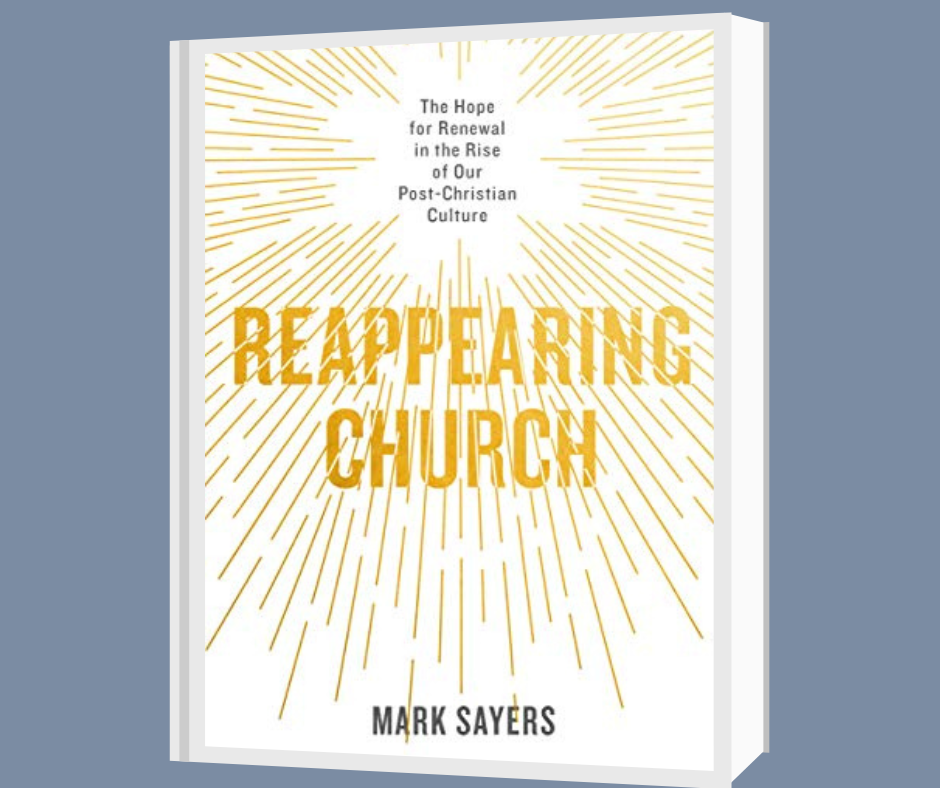Book Reviews
Reappearing Church: The Hope for Renewal in the Rise of Our Post-Christian Culture, by Mark Sayers | Review by Rosa Byler

As the cultural landscape shifts around us, Christians can feel fearful and vulnerable. Media experts triumphantly announce the decline of religion and the progress and freedom brought about by secularism. Yet Sayers demonstrates from history that revival and renewal have traditionally followed similar times of cultural upheaval and transition. When crises motivate Christians to a “holy discontent” with their own condition, poverty of spirit leads to contending prayer that God will initiate revival.
Sayers suggests that Christians have adopted more of the post-Christian perspective than we realize. Sociological elites may sound convincing; he describes them as “stuck in post-Christian thought silos,” interpreting current events through a “narrow and simplistic materialistic lens.” (10) Underlying the secularist-progressive perspective is an Enlightenment-style confidence that true progress will only be possible through the destruction of religion—not considering, however, that society’s wellbeing depends upon cultural resources (such as community and practices of moderation and restraint) shaped by Christianity’s presence.
Jonathan Edwards’s era was also one of cultural transition—from a communal to a capitalist society—and the effects included delayed marriage, promiscuity, generation gaps, deterioration of mental and spiritual health, depression, and melancholy among young people in particular. God’s blessing on Edwards’s life and ministry brought flourishing spiritual life once again, making this “fallow ground” a vital part of the Great Awakening.
Sayers defines renewal as the “refreshment, release, and advancement” experienced when people or organizations realign themselves with God’s purposes. Revival is renewal on a large scale, affecting whole churches, cities, or cultures. He sees the three biggest hindrances to renewal as “Big Business, Big Data, and Big Porn,” culture de-formers of previously unparalleled force. (39)
Failure to actively pursue renewal, whether individually or corporately, leads to stagnation and decline. Sayers outlines five stages in congregational falling away from “hot orthodoxy” (sound biblical faith and doctrine flowing out of a majority of members living a “powerful and vibrant spiritual life”) to “dead orthodoxy” (biblical faith affirmed in word and thought yet from unregenerate hearts). The middle stage is “cultural Christianity,” an inherited religious identity in which Christian practices, cultural expectations, and tradition form the framework. Lines between faith and culture are obscured, although there may be personal elements of faith. (108)
With its consumerism and emphasis on individualism, the Western lifestyle produces poor candidates for renewal. Preparing for renewal begins with repentance and continues with the re-shaping of life habits and rituals: Sayers recommends solitary prayer and self-examination, fasting, confession of sin, and worship. The book includes an appendix on forming small groups for prayer, reflection, and accountability.
Australian pastor Mark Sayers is a thoughtful observer of culture and social patterns and also the author of Disappearing Church, a commentary on the Western church’s response to cultural changes. His insights are all the more valuable considering that his country may be a few steps further on the secular-progressive cultural scale than ours. This second book is encouraging enough to be called simply Hope for Renewal and is well worth reading.